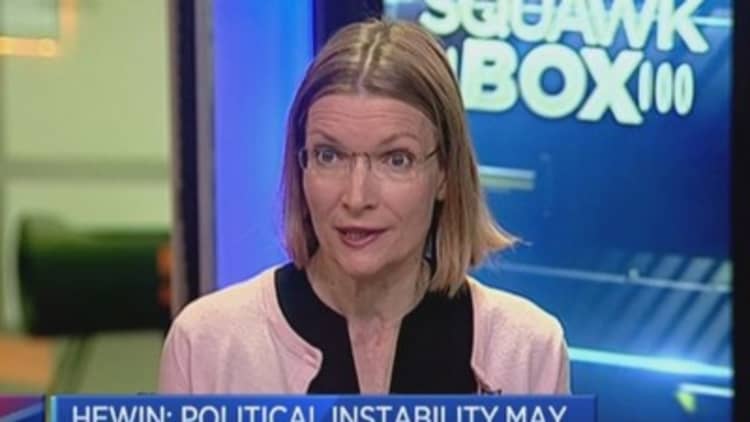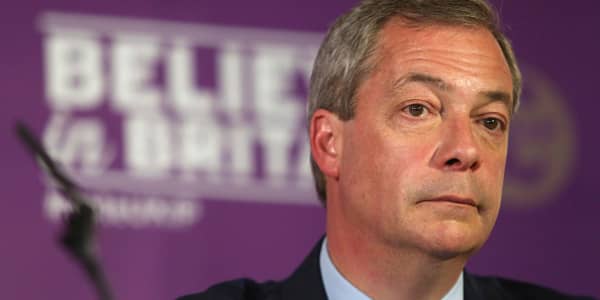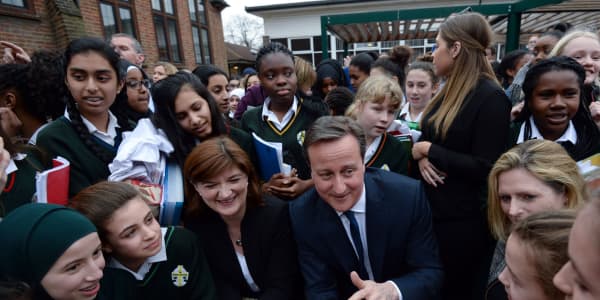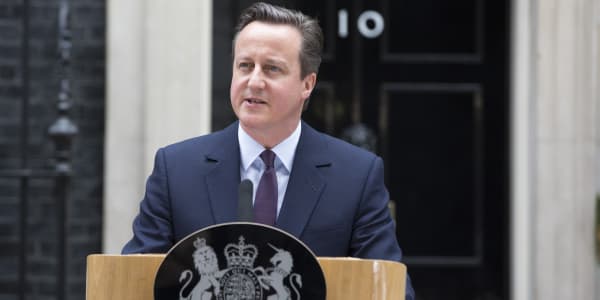Just weeks ahead of parliamentary elections in the U.K., one closely-watched financial analyst has launched a scathing attack on the country's finances and predicted another crisis for its currency.
"The U.K. economy stands alone, up to its eyeballs in macro manure. Eventually the stench will fill the nostrils of currency markets with the inevitable result – another sterling crisis," Societe Generale's notoriously bearish strategist, Albert Edwards, warned in a research note on Tuesday.
The analyst from the French bank highlighted that the U.K. government - currently led by the Conservative Party - has not been able to deliver on its promises to reduce the country's spending levels, leaving "grotesquely wide deficits" and external imbalances.
Effectively, the Conservatives have kicked the can into the next parliament, Edwards added, with the public sector deficit and current account deficit - the measurement of the country's trade - both exceeding 5 percent of the U.K.'s GDP (gross domestic product).
"That is a poor legacy indeed," he said. "What is so shocking is how little progress has been made since the 2008 Great Recession. Going into the general election it is difficult to separate fact from fiction as both main parties trade insults and make claim and counterclaim."
Edwards' comments echo those of Carl Weinberg, chief economist at High Frequency Economics, who told CNBC in January that sterling risked a "very big move of very dramatic proportions" as a result of this deficit.
The pound has slipped over 5 percent against the greenback over the year to date as the general election looms.
On Wednesday morning, it was trading at 1.4701 against the dollar -- a far cry from peaks seen in the middle of last year of more than 1.70. Meanwhile, the euro was trading at 0.7191 against the pound on Wednesday morning.
Read More UK election: Battle for center ground heats up
A weaker currency may boost revenues for export-led companies in a country, but is usually seen as a sign of a weak economy if it falls too far. The last time the U.K. had a genuine currency crisis was on September 16, 1992 - now known as "Black Wednesday" – when sterling fell amid frantic selling on global currency markets.
Election jitters

Not everyone is as concerned about the U.K.'s economic future, however. The International Monetary Fund last year named the country the fastest-growing economy in the G-7, and the Conservative Party has been promoting what it calls its tough fiscal stance ahead of polling on May 7.
Jonathan Portes, director of the National Institute of Economic and Social Research think tank, agreed with Edwards that the U.K. has only recovered because it has abandoned its tough stance on austerity. However, he argued that investors should not expect panic or expect a market crisis.
"Some turbulence is always possible," he told CNBC via email Wednesday. "(However) I think the 'election jitters' for sterling have been greatly exaggerated. It's at a five year low versus the dollar - and a five year high against the euro. It's trade-weighted index has if anything gone up a little, but basically there hasn't been that much action."





